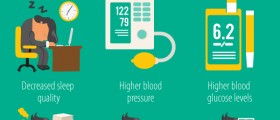
The society that we live in and the jobs that we do make us feel anxious and liable to all sorts of stress. Workplace stress is the most dominant stress nowadays. According to the statistics, every year, six million people from all around the world take sick leave, because of stress.
Workplace stress
What are the main things that cause stress in the working environment? Deadlines, ticking clock, everlasting pressure are just some of the things that cause stress at work. If you are serious in fulfilling your tasks, if your job is demanding, if it is expected from you to work well under pressure, then you are most likely to handle stress with much more ease. In the end, the trigger that causes stress differs from person to person. It would be good if we all had a high amount of job pressure tolerance, but that isn’t possible, and in some moments even the smallest thing can upset us.
Stress triggers
There are some typical triggers that can cause stress at work. A significant contributor to stress is if a person has no control over the amount of work that he/she has to do and if there are too many based pressures that have been collecting over time. Too many working hours have a big influence on the working stress and, if there is no flexibility of working hour, then a stress may appear as a consequence. If your job description is too boring, if you simply don’t like that kind of work, or if social relationships within the organisation that you work in are poor, you may feel nervous and stressed. It is also very difficult to work if you don’t have a full and honest support from your colleagues and if they don’t appreciate your time and effort spent on some project. Poor organisation and inadequate stimulans can only contribute to the stress at work.
Symptoms of Workplace Stress
Symptoms of stress at working place are manifested physically and psychologically. The most common physical symptom is the total decrease of the resistance of your immunity, which means you are more liable to colds and infections, you have headaches, tensed muscles, pain in the back and neck, insomnia, increased heart palpitations, poor vision and rashes on the skin. On the other hand, psychological changes are seen in your emotions and behaviour. You may fell depressed, unwilling to do anything, you may have no need to eat at all, and you may have difficulties with concentrating to one thing.
If you notice these kinds of symptoms, then you should know that it is time to change something. Primarily, it relates to changes at work, and the main rule is not to bring work home. The change of a lifestyle is not an easy task, because by doing that, you affect the life of you family and friends. But remember, it takes time to bring everything in order and to find inner peace.







_f_280x120.jpg)









Your thoughts on this
Loading...